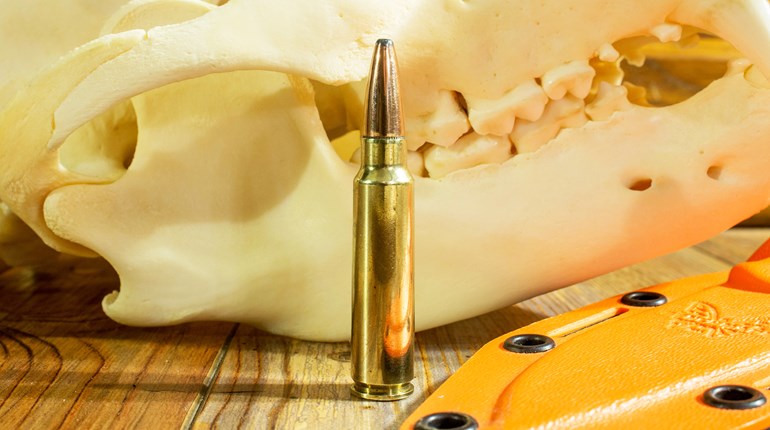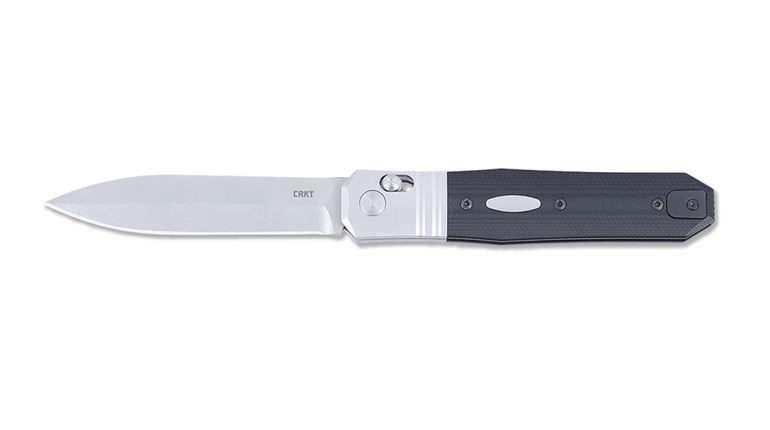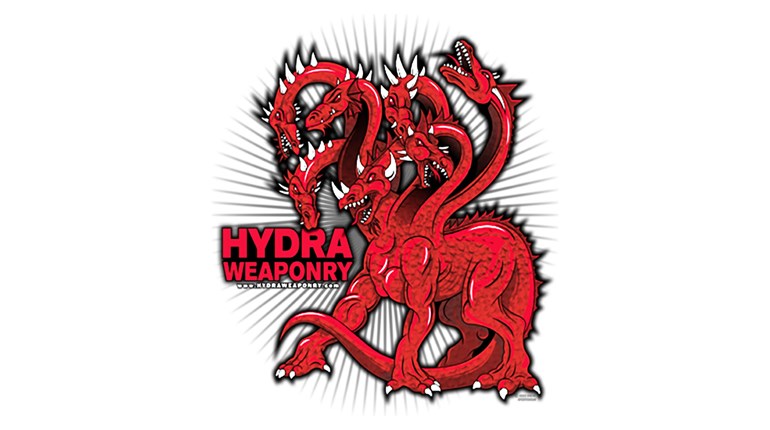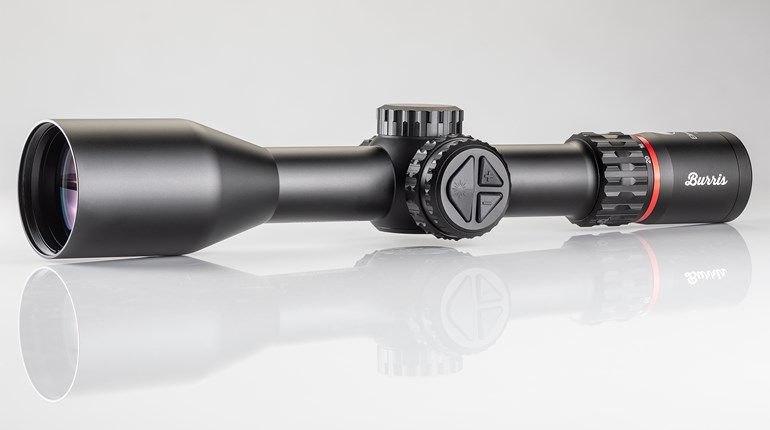
In the review that would be instrumental in helping the Mossberg Shockwave secure honors as our Golden Bullseye winner for Shotgun of the Year (despite, technically, not being a shotgun), Jeff Johnston relates that “…the laser is a game-changer.” He maintained a degree of skepticism about the Shockwave, noting that the pistol-grip-only made it difficult to aim. The shorter barrel makes it eminently more portable, while maintaining most of the power from 12-gauge shotshells; however, despite the rumors you may have heard, they still need to be aimed.

Johnston solved this dilemma by putting a Crimson Trace laser on a rail added to the top of the receiver. His comments about adding the laser being a game changer are even more salient in light of Crimson Trace’s latest offering, the Lasersaddle. Developed for Mossberg’s shotgun line (500, 590 and 590 Shockwave), the Lasersaddle bolts to the receiver (and still allows for the top Picatinny rail). The laser is activated by a simple switch with three points of contact: one just above the trigger finger, one immediately over the trigger itself and one rearward, just to the side of the tang-mounted safety.
Adding the Lasersaddle to a 500 or 590 is a powerful addition to an already potent home-defense tool, but when combined with the Shockwave, really increases the usefulness of the Shockwave’s main advantage, its compact size. With the pistol-grip only, both hands on the Shockwave are a must, and aiming is a complicated affair in the absence of the laser. It needs to be brought to the line-of-sight, but far enough from the face to avoid coming too far back under recoil. With the Lasersaddle, though, it can be held straight out from the body, far away from anything it might recoil back into.

Shooting a Shockwave equipped with a Lasersaddle really is a completely different experience than shooting one without. In the absence of the laser, recoil really does enter into the equation; specifically, the fear of the Shockwave recoiling back into one’s nose if aiming properly. It’s rather difficult to hold the firearm steady, properly place the bead on the target, and get a shot off while perpetually worrying about the distance betwixt one’s face and the pistol grip. With a properly zeroed laser sight, however, you can extend the firearm fully and remove one area of concern, leaving you to concentrate on the fundamentals.
The Lasersaddle ties everything together in a compact package that adds little weight or bulk. While it doesn’t have the instinctive activation of Crimson Trace’s signature Lasergrips for pistols, it’s hard to see how this could have been accomplished given the hard recoil of a 12 gauge. As it stands, with certain high grips the outer edge of the Lasersaddle will dig a bit into the web of your dominant hand in extended shooting sessions—not a huge problem; wear gloves for those sessions. What the Lasersaddle does, quite efficiently, is allow precise and immediate aiming without bringing the firearm anywhere near your face.

At an event earlier this year where Crimson Trace and Mossberg slyly teased a group of gunwriters, we had a chance to run quite a bit of birdshot and buckshot through several Lasersaddle-equipped Shockwaves. The improvement in aiming and shooting is, quite simply, stunning. Press one of the activation buttons, turn the laser on, point laser at target, BOOM. A quick note of caution: If you're tempted to brace the Shockwave against your hip, be careful—there's a spot for a sling swivel right at the end of the pistol grip. If that swivel is installed, it will jam itself, quite forcefully, into your hip bone if you fire it while braced against your hip. Don't ask me how I know this...
MSRP is $199 for the red laser version and $219 for the green laser. Two CR2032 batteries power the red-laser variant for 4 hours, while four CR2016 batteries power the green version for two hours. Concerned about battery consumption? Don’t be—the Laserguard is covered by Crimson Trace’s “free batteries for life” program.





































